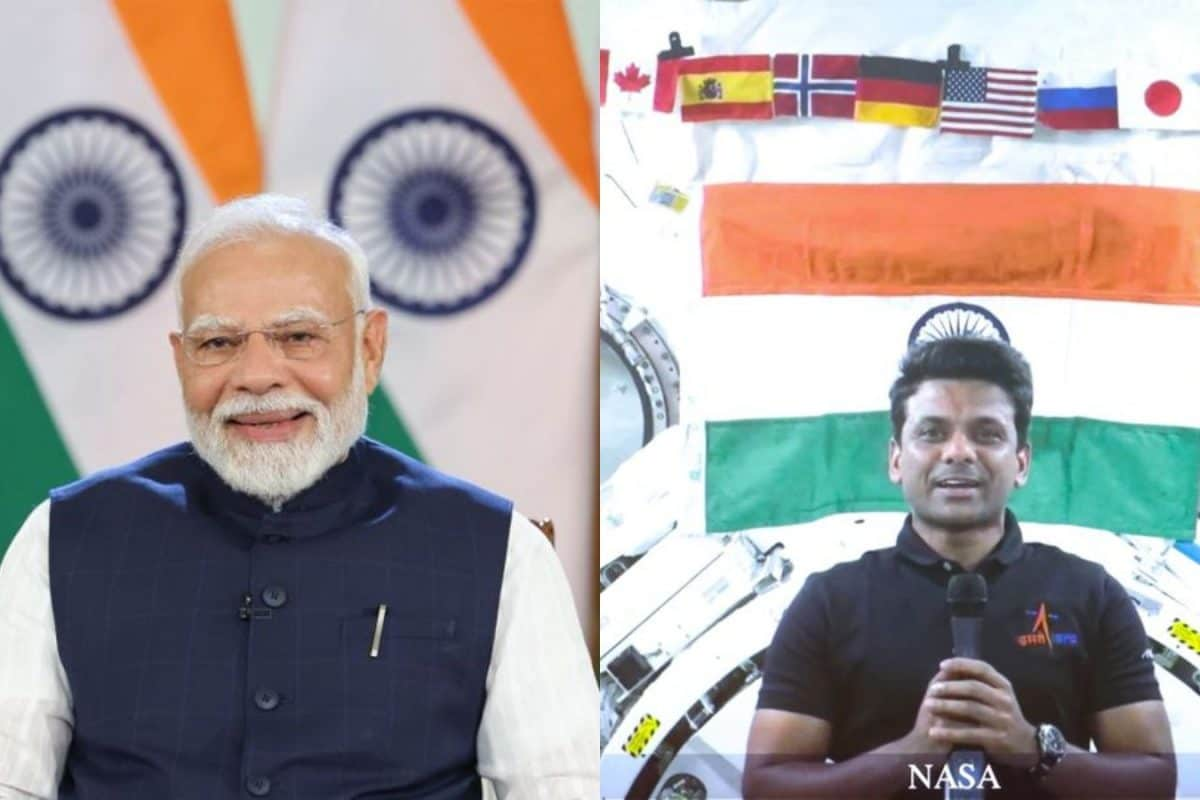

Prime Minister Narendra Modi has interacted with Group Captain Shubhanshu Shukla, the first Indian astronaut aboard the International Space Station (ISS). This interaction highlights India's growing capabilities in space exploration and collaboration between the private and public sectors in space missions.
Shubhanshu Shukla's journey to the ISS marks a historic moment for India. He is the second Indian to travel to space, following Rakesh Sharma's mission in 1984. Shukla's mission is part of the Axiom-4 (Ax-4) mission, a collaboration between NASA, SpaceX, and ISRO. The mission launched from NASA's Kennedy Space Center in Florida on June 25, 2025, and the SpaceX Dragon capsule, named 'Grace', successfully docked with the ISS on June 26, 2025.
The Ax-4 mission is the fourth private astronaut mission conducted jointly by NASA and Axiom Space. The four-member international crew includes Commander Peggy Whitson from the United States, Pilot Shubhanshu Shukla from India, and mission specialists from Poland and Hungary. This diverse composition highlights the mission's significance in fostering international collaboration.
Shukla's role as the mission pilot extends beyond symbolic representation. His participation provides India with valuable operational experience that will directly benefit the country's Gaganyaan mission, scheduled for 2027. The Gaganyaan mission aims to send three astronauts to a 400-kilometer Low Earth Orbit for three days, establishing India among the exclusive group of nations with independent human spaceflight capabilities.
During his 14-day stay on the ISS, Shukla will conduct numerous scientific experiments to study the effects of microgravity on biology and technology. These experiments are broadly classified into seven categories, and Shukla has been assigned a leading role in performing them. His work on the ISS will provide hands-on knowledge of pre-launch quarantine procedures, international collaboration protocols, spacecraft ingress and egress procedures, medical diagnostics in microgravity, and health readiness protocols.
Prime Minister Modi welcomed the successful launch of the Ax-4 mission, stating that India is no longer a follower but an equal partner in space collaboration. Union Minister Dr. Jitendra Singh echoed this sentiment, emphasizing India's rise as a key player in space exploration.
Shukla's mission significantly elevates India's global standing within the space community. This achievement serves as a foreign policy tool, opening doors for deeper diplomatic collaborations and strengthening international partnerships. India's existing collaborations with Russia on astronaut training, France on life support systems, and the recent agreement with Australia for crew recovery support exemplify India's proactive engagement in space diplomacy.
Upon entering the ISS, Shukla greeted people back home with a "Namaskar from space". He later described the experience as "learning like a baby," expressing gratitude for the support he has received. Mission Commander Peggy Whitson presented him with his astronaut pin, designating him as astronaut number 634.
Shukla's journey marks a transformative moment in India's rise as a space power. His participation in the Ax-4 mission is a key stepping stone towards ISRO's Gaganyaan mission planned for 2027.